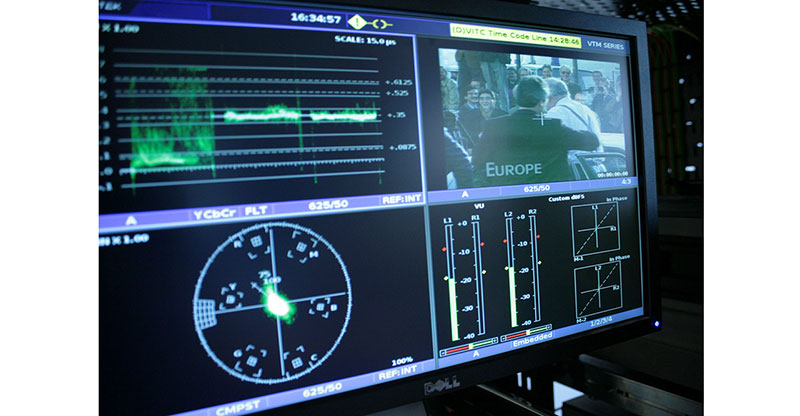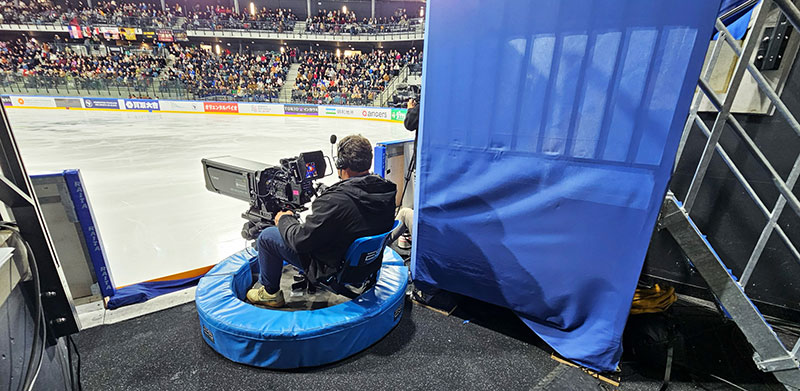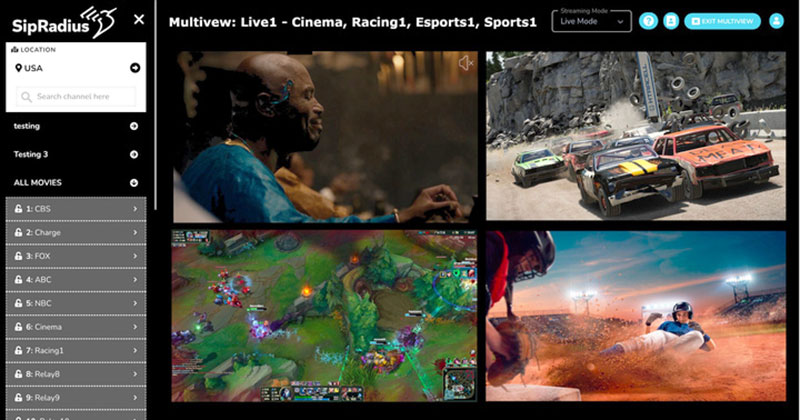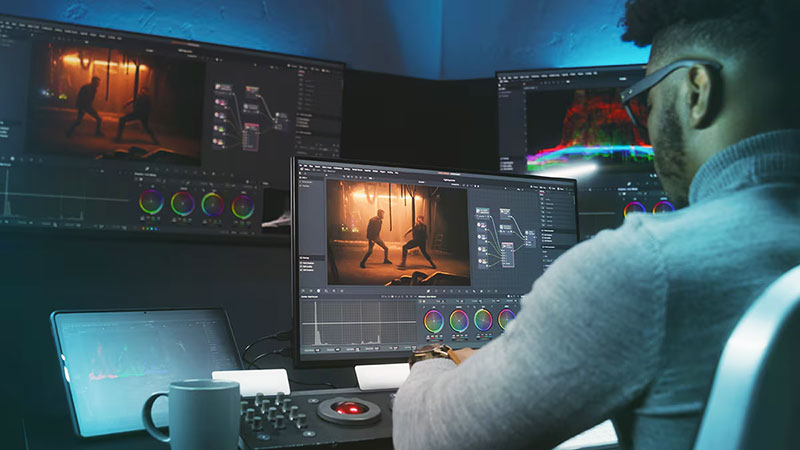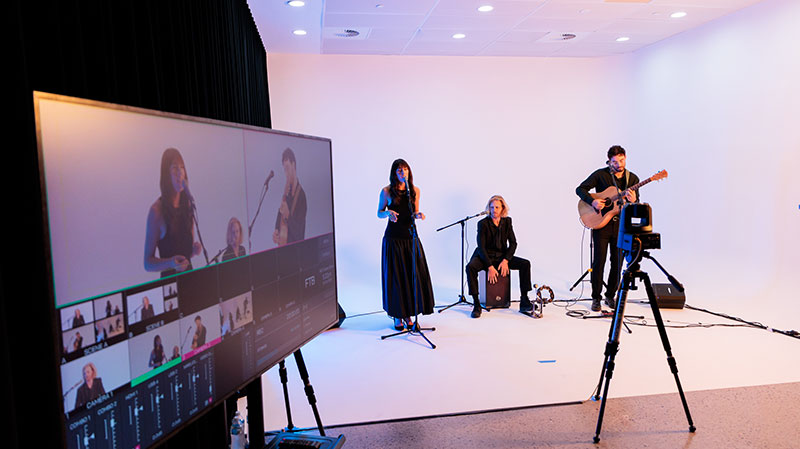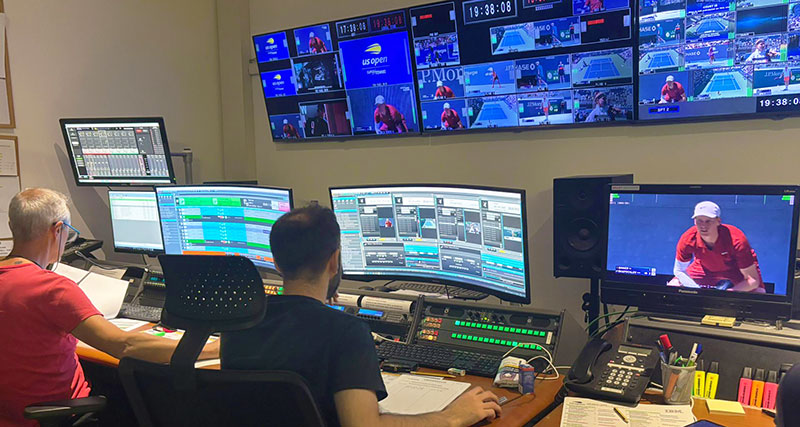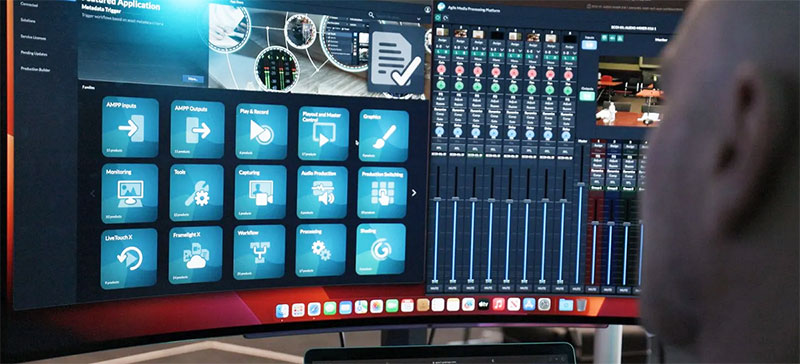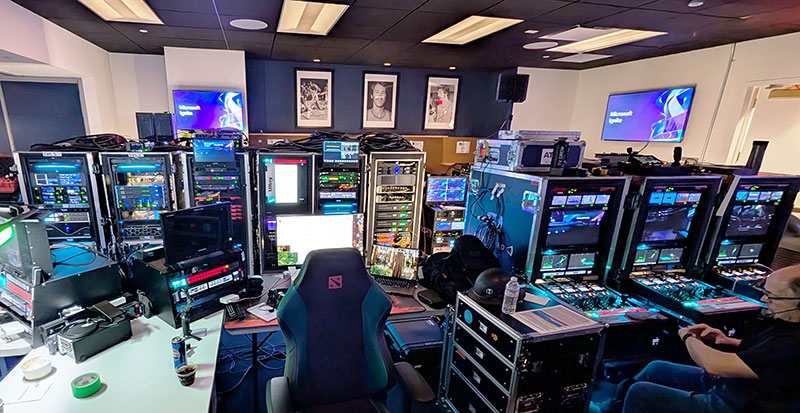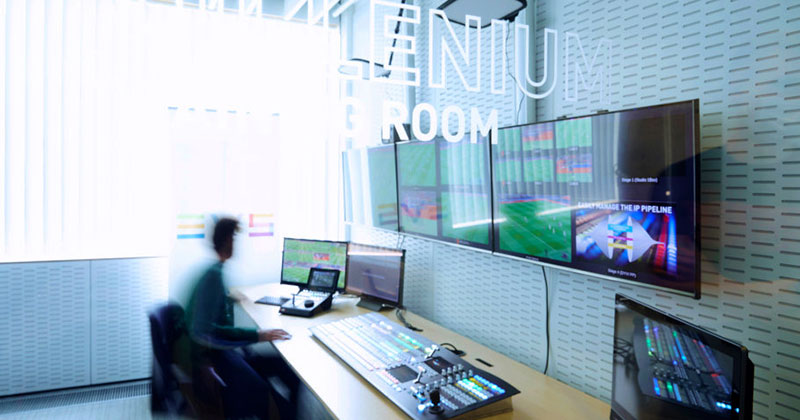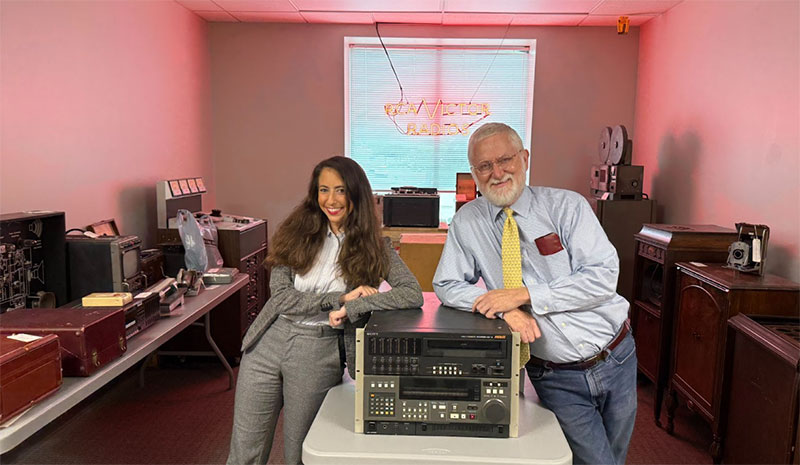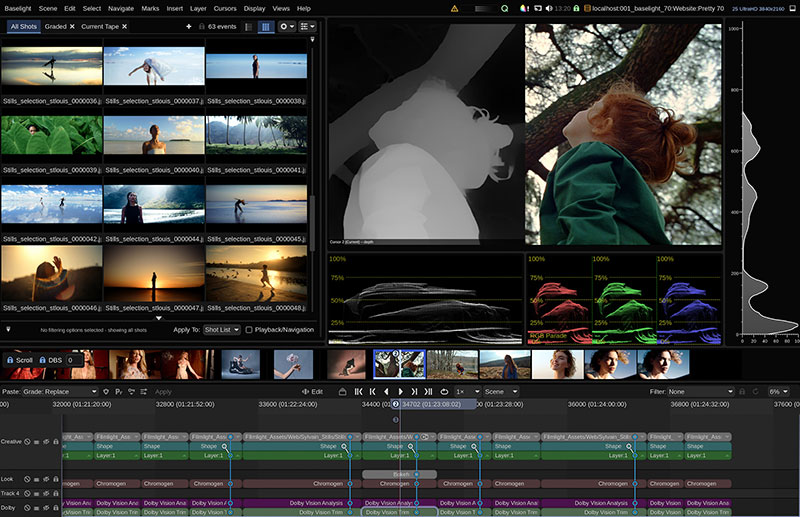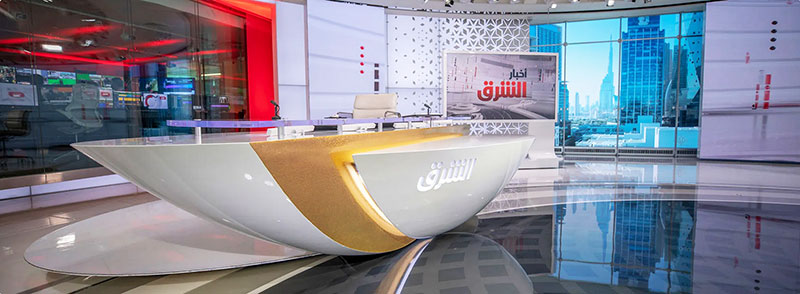Riot Games will soon produce e-sports with Sony’s Networked Live global production system, expanding use of Nevion’s VideoIPath for control and adopting the MLS-X1 scalable switcher.
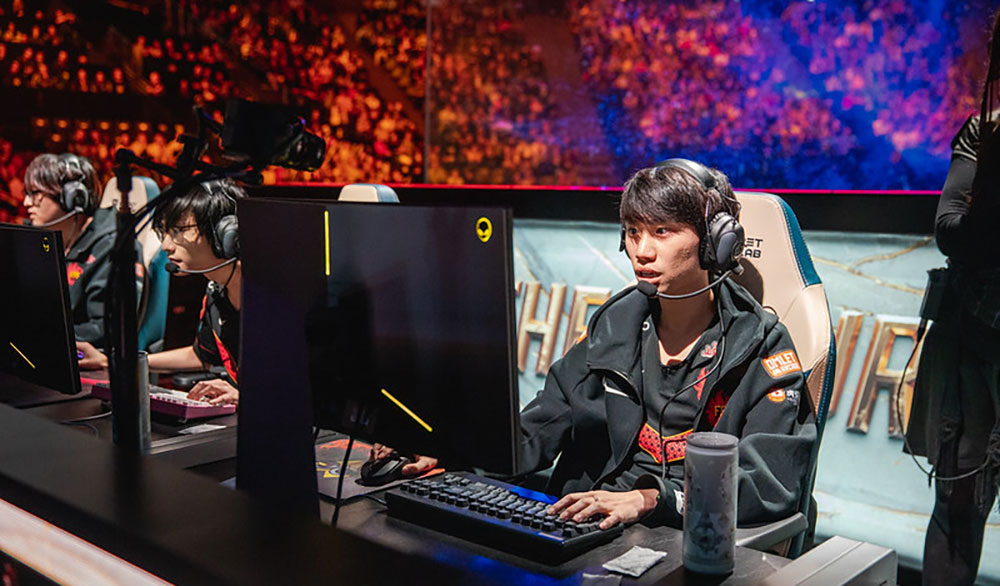
Riot Games develops, publishes and supports some of the most widely played games in the world – including League of Legends and VALORANT. E-sports tournaments for these games are important to the fans and gamers and, therefore, are an important aspect of Riot Games’ business. Since 2019, Riot has been deploying Nevion VideoIPath orchestration and Nevion Virtuoso media processing nodes to support global, follow-the-sun remote production that allows them to produce tournaments and events from any of their production facilities around the world.
As a kind of network controller, VideoIPath sets up the devices, applications and services in the network to meet the production requirements of Riot’s tournaments. Handling the network as a whole, not just as individual components, VideoIPath synchronises all parts of the network, and meanwhile monitors the media nodes and network resources. Virtuoso’s functions cover audio/video processing and IP adaptation across multiple formats, including JPEG XS compression.
Networked e-sports
Riot Games’ next move is to update the implementation of their production environments to run on Sony Electronics’ Networked Live, a system of products and services that optimises and combines on-premises and cloud processing, and connects them via networks. Networked Live will become the core of Riot’s remote e-sports production.
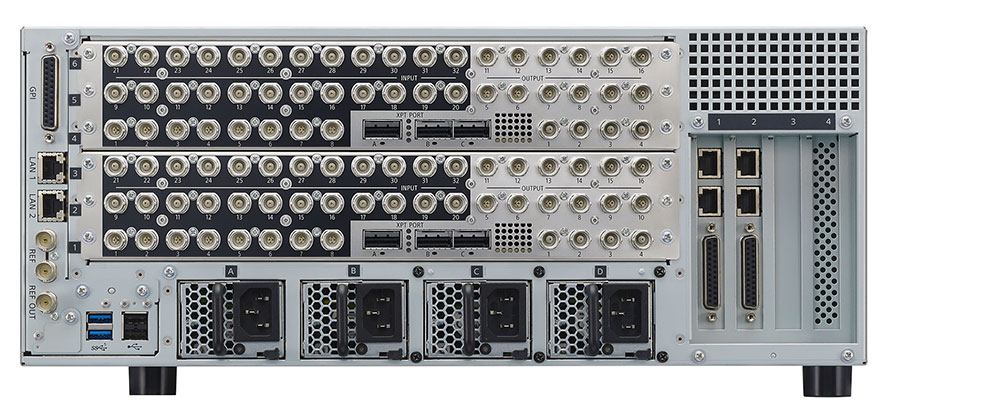
Sony Networked Live processor
The company will install Sony’s MLS-X1 modular live switcher, a further Networked Live component alongside VideoIPath and Virtuoso, and expand its use of VideoIPath to include broadcast control, while adding federation of resources. ‘Federation’ here refers to the ability for multiple autonomous instances of VideoIPath to collaborate within and across locations. It allows production resources – studios, control rooms, people, on-premises and cloud processing – to be shared and used regardless of where they are located, and without compromising orchestration performance, reliability and security.
Scalable and Reconfigurable
The MLS-X1 is a scalable, reconfigurable switcher for live production that can be expanded at different times by connecting further units. Each MLS-X1 unit is connected through the network, and its physical structure can be changed dynamically to suit new projects. For large-scale events, multiple MLS-X1 units can be linked to other units assigned to other studios, expanding the system’s power and capacity instantly.
Its architecture adds a GPU-based effects and graphics module to the switcher’s video processing structure, adding very flexible video processing power. Hardware accelerated processing supports real-time processing of UHD and HDR video, with low latency.
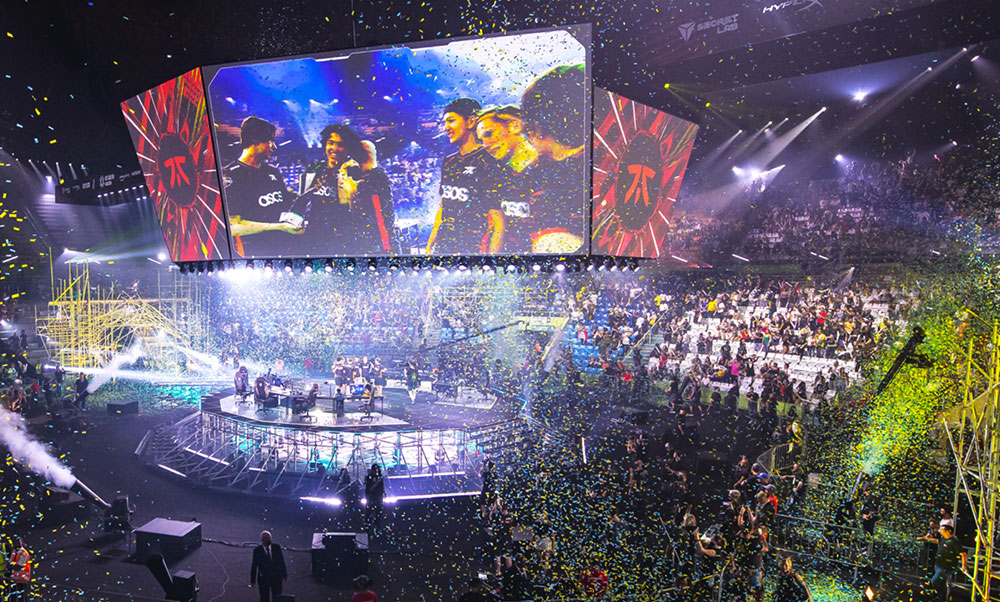
The MLS-X1 can handle productions simultaneously, such as UHD/HD multi format production, or a host feed plus a unilateral feed, such as those required for live sports. The human resources are also reconfigurable – that is, all productions can be produced with one panel and one crew, or multiple panels and crews as the program requirements demand.
Divided Resources
Resources for the switcher can be divided up, allowing it to be used as multiple, smaller processing units or combined to support larger shows, according to the demands of the production. Riot will use the MLS-X1 in Dublin, Ireland, and in their second remote production site in Seattle, which has begun full operations this year.
As productions get underway, VideoIPath will make it possible to connect, orchestrate and optimise media flows across Riot’s SDI and IP networks, using Software Defined Networking (SDN) control. Riot recently upgraded these capabilities to include modern broadcast control for the new Seattle remote production centre. VideoIPath’s broadcast control functionality can be used for IP-based facilities, MCRs, mobile production and so on. These control functions may be used in combination with the network orchestration, or independently.
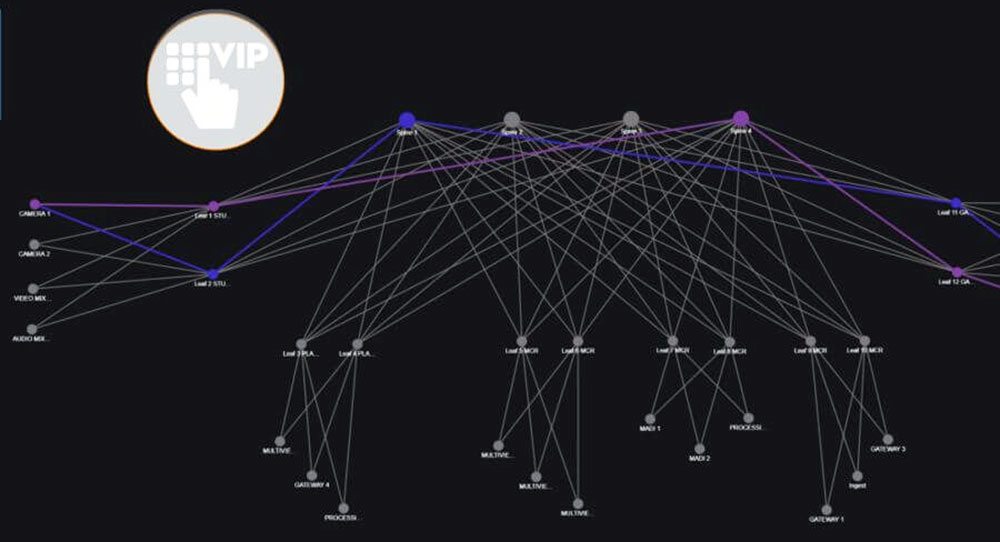
Nevion VideoIPath networking
Furthermore, through the use of the system’s federation functionality mentioned above, Riot will connect their Dublin and Seattle locations to take advantage of multiple autonomous instances of VideoIPath.
“Technology is such a vital component to Riot's ability to execute innovative e-sports productions that ultimately help us connect and engage meaningfully with e-sports fans around the world,” said James Wyld, Principal Infrastructure Engineer, Riot Games.
“Our experience with Sony’s Networked Live ecosystem has allowed us to create a powerful, globally connected model that delivers flexibility and efficiency in how we produce our shows.” pro.sony




